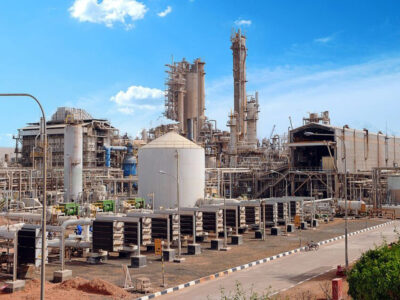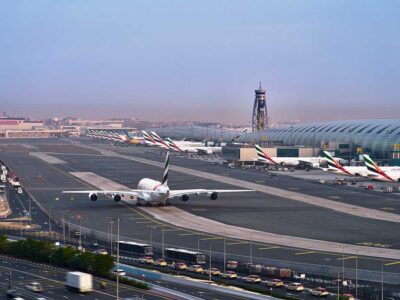Saudi Basic Industries Corp (SABIC)
made its largest drop in five months after the petrochemical
producer’s quarterly profit missed estimates, with investors
little moved by its expectations for higher sales in 2011.
SABIC fell 3.2 percent, its biggest drop since August 7 and
second straight decline following Monday’s 28-month high.
SABIC, the largest company on the Saudi bourse, reported a
27 percent rise in quarterly profit to SR5.81bn ($1.55bn). Analysts had forecast the state-linked firm
would make SR5.87bn.
“Overall, a quarter-on-quarter operating profit increase of
11.5 percent seems a notch lower than expectations given robust
Yansab and Safco performance,” says Ankit Gupta, senior research
analyst at Securities & Investment Co (SICO) in Bahrain.
On, Wednesday, SABIC said it expects higher sales and
profitability in 2011 and 2012 as production increases and
petrochemical prices rise to pre-crisis levels.
Saudi Arabia’s index TASI dropped 0.9 percent to a two-week
low of 6,658 points.
Yanbu National Petrochemical Co (Yansab) reported
a fourth-quarter profit of SR554.76m, topping
analysts’ estimates. Its shares drop 0.4 percent.
Saudi Arabian Fertilizers Co’s (Safco) quarterly
profit nearly tripled, buoyed by higher prices. Its shares climb
0.4 percent to a 28-month high.
Abu Dhabi’s Aldar Properties ended lower, resuming a decline sparked by its unveiling of a
restructuring plan that will be dilutive to shareholders and
also includes $2.9bn in impairments.
Aldar fell 2.9 percent, nearing Monday’s five-month low.
Rival developer Sorouh Real Estate dipped 2.6
percent.
Abu Dhabi’s index ADI slipped 0.1 percent to 2,676 points,
its lowest finish since October 3.
In Dubai, telecoms operator dropped 1.6 percent,
weighing on the emirate’s benchmark DFM, which fell 0.2
percent to 1,619 points.
The latter is down 74 percent from a January 2008 peak as
similar declines in Dubai prices and the emirate’s debt problems
stymie investor hopes that shares will rebound.
“UAE valuations are the lowest in the region, especially
compared to underlying assets and book value, but the problem is
that there are few catalysts,” said Walid Shihabi, Shuaa
Securities chief executive.
“If we don’t have these, the UAE market will continue to lag
in the medium term.”
Shares in Doha Bank tumbled after the
lender’s fourth-quarter profit missed estimates, weighing on
Qatar’s index QSI, which made its largest decline in eight
weeks.
Doha Bank fell 3 percent, its biggest drop since June 2,
after its quarterly profit rose by a quarter to QR154m ($42.3m). Analysts had forecast it would make
QR208.12m.
“The results were a disappointment because of higher
provisions for bad loans,” said Jaap Meijer, AlembicHC senior
analyst.
Doha Bank also announced plans for a 15 percent capital
increase, Meijer said.
“The bank’s capital increase was a surprise and should
dilute EPS (earnings per share) by circa 6 percent,” he added.
Qatar’s index fell1.3 percent to 9,081 points, its biggest
decline since November 23.
Large cap banks rose in Kuwait, but the country’s index KWSE declined for a
fourth session in five, with trading subdued as investors waited on Zain.
National Bank of Kuwait and Kuwait
Finance House climbed 1.4 and 3.3 percent respectively.
Zain fell 1.4 percent. Abu Dhabi’s Etisalat has provisionally agreed to buy
a $12bn controlling stake in its Kuwait rival, but missed a January 15 deadline
to complete due diligence on the deal.
“The Zain issue is taking over the whole market – everyone is waiting
on the deal and turnover is falling,” says a Kuwait trader who asked not
to be identified. “People are patient because they believe the deal with
Etisalat will be completed.”
Kuwait’s index slipped 0.04 percent to 6,916 points.
Muscat’s index MSI ended lower for a third day as steep declines on Egypt’s
bourse and a lower opening in Saudi Arabia sapped local sentiment, but Oman’s
fundamentals remain strong and shares are seen rebounding next week.
Bank Sohar dropped 1 percent, despite an increase in customer deposits which
pushed the lender’s fourth-quarter profit up 27 percent
“Sohar’s results were a little below expectations, but the stock is
stable, which signals the strength of Oman’s market,” said Adel Nasr,
United Securities brokerage manager.
Oman’s index dropped 0.2 percent to 6,990 points.
“The crash in Egypt yesterday and Saudi again heading lower has
affected regional sentiment,” adds Nasr.
“But I don’t think this will continue for much longer and I expect Oman
to rebound from the beginning of next week – people still believe in our
fundamentals. Volumes are down, which shows there isn’t much selling
pressure.”
Oman’s economy is expected to expand 4.6 percent in 2011, according to a
Reuters December poll, growth only seen bettered by Qatar in the Gulf Arab
region.








